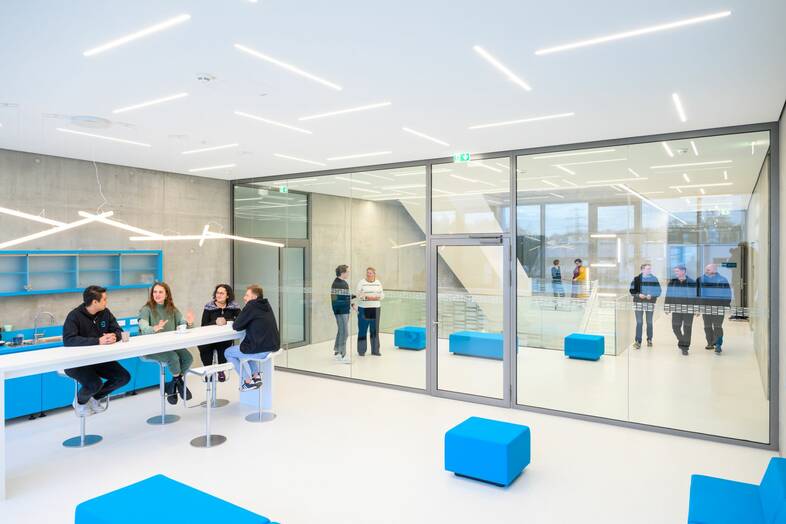In Portrait | Cambrium: New materials with the aid of AI

Even the company name shows that founders Mitchell Duffy and Charlie Cotton have big plans: the Cambrian period hundreds of millions of years ago was when multicellular organisms first emerged from single-celled organisms. “In the so-called Cambrian explosion, evolution caused the biological Big Bang and thus the beginning of diversity,” says Cambrium CEO Mitchell Duffy. “Instead of new organisms, we now want to produce new biological and sustainable materials - with a similar big bang effect as back then.”
Programmed Proteins
Cambrium wants to achieve this goal with the help of artificial intelligence (AI). In terms of new materials, the company, which was founded in 2020, is currently focusing on the production of proteins - especially collagen at present. “There are an incredible number of proteins on Earth whose building blocks can be put together in different ways,” says the doctor of biology. “Until now, evolution has determined these compositions and optimized the biomaterials, but this takes a long time and doesn't necessarily result in proteins that we can use as materials. With the help of AI, we can now program the proteins so that they do exactly what we want and what we can use particularly well.”
Duffy says the focus on the production of collagen came about when he and his founding partner asked potential customers what material was particularly needed and what companies would like to produce more sustainably. “We identified a great need for collagen. This is usually obtained from animal tissue and is particularly in demand in cosmetics production,” says Duffy. “So we initially focused on developing and producing a skin-identical, micromolecular collagen.”
Seven of the now 25 employees are currently working almost exclusively with big data and AI, examining the properties of millions of protein sequences and programming the designs for the proteins. In the Cambrium laboratory, the proteins are then first produced in cell factories in small containers using precision fermentation and tested to see whether they deliver what they promise. If this is the case, production is outsourced to partners and the materials are then sold to customers.
Cosmetic and Textiles
The company already has a number of buyers for its first official product “NovaCollTM,” one of whom is already selling it in their skincare products. “We expect around 50,000 people to be using something containing one of our products by the end of the year,” says the founder. Cambrium is continuing to focus on developing innovative, competitive materials with partners from different industries. “For example, we are working on a project with a global producer of synthetic leather,” says Duffy, adding that further use cases are being planned.
Cambrium has two locations in Berlin: the headquarters in Berlin-Mitte on Friedrichstrasse and the laboratory on the Berlin-Buch campus. “The campus is a great place for us,” says Duffy. “There is exciting research going on there and lots of interesting start-ups and companies that we can exchange ideas with.”
He says that fundamentally, there is a great deal of help for start-ups in Berlin; Cambrium has received support from the Senate (the city government of Berlin) as well as from Investitionsbank Berlin and the Berlin Partner business development agency. AI is also in good hands in Berlin, he adds. “For example, there’s a big pool of talented people here as well as many exciting companies and projects,” says Duffy. He now has it in writing that his company is among the innovative start-ups in the field of deep tech: Cambrium won this year's Deep Tech Award in the “Artificial Intelligence” category.
Further Links:
- Cambrium website https://www.cambrium.bio/
- Deep Tech Award 2024 statement in German https://www.berlin.de/deeptech/blog/artikel.1466345.php
Deep Tech Talk interview with Cambrium GmbH https://www.berlin.de/deeptech/en/blog/artikel.1473108.en.php



